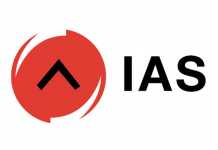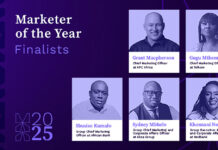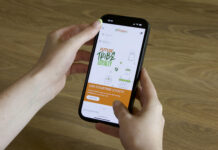Brand reputation relies heavily on exemplary service delivery and getting this right rests on having a deep understanding of what customers want out of an interaction with employees. Trust and loyalty levels are diminishing globally and consumers no-longer want to be put in boxes, treated generically or given false promises.
“We are in an unbelievable time of social change that affects brands and service. The world is changing and you can’t assume that what you know is still relevant,”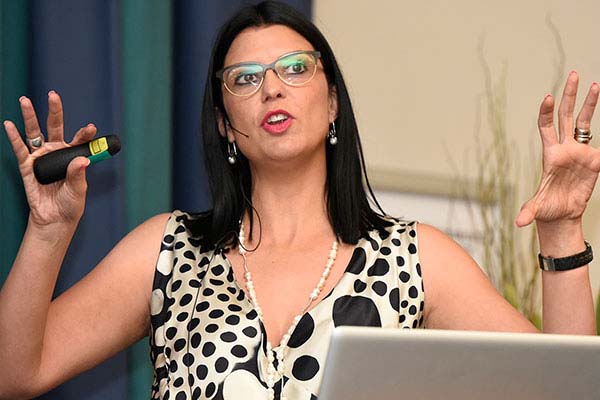
said Andrea Gevers, CEO and Founder of Ask Afrika, in welcoming the high level delegates at the Ask Afrika Orange Index Service Diagnostics and Social Trends Conference, held at The Gordon Institute of Business (GIBS) in Illovo, Johannesburg on the morning of Thursday 9th February 2017, “Today is about what is behind the numbers, what the numbers don’t tell us. Numbers sometimes stop us thinking, if looked at in isolation. Today is about the ‘behind the scene’ facts.”
Best of the Best
Three special awards were presented at the conference:
· The Most Consistent Achiever – Volkswagen
· The Biggest Improvement – Avbob Insurance
· The Best Municipality – Nelson Mandela Bay
The most trusted organisations were acknowledged:
· Most Trusted Retail Company – Shoprite
· Most Trusted Public Department – Department: Health of RSA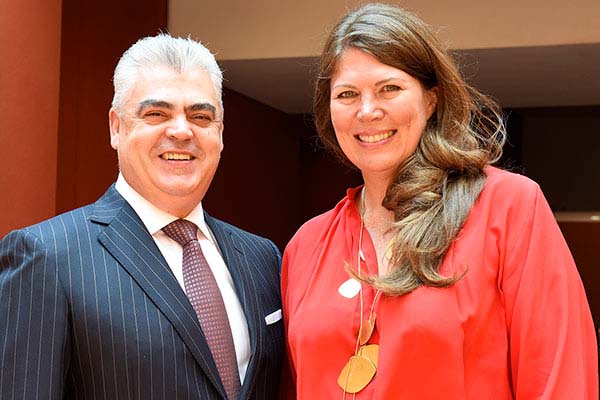
Guest speakers José dos Santos, CEO of Cell C (Overall Call Centre Winner) and Geoffrey Collier, Customer Experience Director at Volkswagen (Overall Winner) shared insight into their winning formulas. Ntombifuthi Nala, Director of Research and Knowledge Management at GCIS spoke about service delivery within Government. Janine Hills, CEO from Vuma Reputation Management and BrandSA’s representative explained why service delivery matters to South Africa.
The winning companies of the 2016/2017 Ask Afrika Orange Index, which spanned across 33 industry sectors and 132 companies, were announced at an awards ceremony held at The Wanderers Club in November 2016 and publically recognised as the leaders in service delivery excellence. Over the years, the winners have been consistent because they provide more consistent service experiences with corresponding emotional satisfaction.
Key take outs
These are some of the top level trends that were revealed by Sarina de Beer, MD of Ask Afrika.
Be professional to each individual
“Service levels have gone down and brands are not mastering the balance between overall satisfaction and emotional satisfaction. This year our 15 000 respondents said that what matters most to them is the level of interest shown by the employees in them as an individual. This has massive implications for how we engage. In addition, it is about professionalism – we need to master the complexity,” explained de Beer.
Responsiveness is the new currency
“Customer obsession is becoming more crucial than ever as ‘psyches of loyalty’ diminish. Companies that dropped in their Ask Afrika Orange Index performance also dropped in their net promoter score (NPS). Generally speaking luxury industries are taking strain, their service strategies seem immature and their focus on brand strategy has left them vulnerable,” says de Beer.
In the luxury market for the super wealthy, it is best for the brand to be inconspicuous, it’s about taste, discernible quality and excellent service to create an all-round positive brand experience. Speed of execution in service delivery means ‘you get me’. When the ultimate scarcity is time, responsiveness becomes the new currency.
I want it all and I want it now
“We live in the digital age of immediacy and on-demand. Customers want what they want, how they want it and when they want it. On top of that, they want life enhancing experiences. If all this can be achieved via mobile while cocooning at home, all the better. It’s about safety and control,” said de Beer.
Technological advances have redefined our expectations of what speed and responsiveness mean, instant gratification is not a new concept, but consumers have less patience and ‘instant’ has become faster. Uber is a great example of this. Service delivery channels are often online or digitized, for example, social media, online orders, online chat customer service, or instant messaging.
There are new expectations of access and availability and real-time delivery is expected. All service delivery needs to mimic the digital experience of ease and convenience. Agility is key.
Attitude over age
In 2017 over a quarter of the global population will be over the age of 50 and creating a longevity economy. The tongue in cheek label is “Midorexia”, with consumers “acting younger than their years”, highlighting the shifting status and expectations of consumers living and working longer, prioritising wellness and taking the economy in new directions. It is becoming important to define customers through attitude and not age.
Identities in flux
“Unpredictability has become legitimate. Identities are in flux, we choose who we are. Globally we are debating issues of gender, race and religion, not policies. The emphasis is on being real and authentic to self. Digitization gives us a platform to express and show who we are, what we stand for and what we value – and what we disagree with,” said de Beer.
Redefining segmentation
“Segmentation as we know it is in trouble. Over centuries we have used demographics to navigate and are comfortable using boxes. This is less effective as authenticity becomes increasingly important. Society is seeking a new navigation system. We need to understand how we build relationships and how to classify differently. Only a progressive society can classify using authenticity,” said de Beer.
Demographic segmentation is no longer relevant and companies that use only this will get it wrong and miss significant differences. Accurate market segmentation based on identity is imperative – it’s about who people are, their values, beliefs, choices and imperfections – rather than their age, background, gender, race, income and nationality.
Keeping it Real
Being authenticity congruent is more important than being politically correct. People are choosing change and they trust people who are ‘real’ even if their reputation is not as ‘good’. The emphasis on trust is not only becoming more visible locally, but is a very powerful global discourse at the moment. An interesting dynamic is also visible between private and public sectors. Sharp declines in public sector Ask Afrika Orange Index scores are eclipsed by sharp increases in private sector scores.
People vs process
People and process dimensions in service delivery are now contributing about 50-50 to loyalty with a skew towards the softer elements, rather than procedural perfection. Loyalty is built through trust, values, authentic relationships and a solid reputation. Trust needs to be earned consistently and makes up just over 50% towards building a loyal partnership. This is followed by fairness, responsiveness and first call resolution (FCR) which has the biggest impact on emotional satisfaction. To add to the complexity, it’s essential to manage and enable positive emotional service experiences, effort and FCR are essential, but are no longer enough to satisfy customers.
“Service delivery needs to be based on authentic, congruent engagements to garner any real sense of brand commitment. Emotionally satisfied customers have high brand loyalty. It’s about making customers feel valued and creating positive emotional experiences for them,” said de Beer.
Buying into brand psyche
“Customer experience and the quest for loyalty is no longer a transactional game despite small performance increases. The weight has now been fairly evenly distributed between getting the transactional efficiencies right and delivering these in a personalised and authentic, in-touch way. Customer’s buy into the brand psyche,” said de Beer.
Background to the Ask Afrika Orange Index
Ask Afrika’s Orange Index is South Africa’s most widely referenced service excellence benchmark, which provides the foundation for in-depth discussions on service trends and diagnostics in the South African corporate and consumer landscape. It is known for its singular breadth.
Launched in 2001 the Ask Afrika Orange Index has a tracking history of service in South Africa for the past 15 years based on robust sample sizes. The views gathered by the Index are done through 15,000 interviews across South Africa and the data is independently audited. Its longevity is testament to its relevance to both public and private sector with regards to providing a reliable yardstick for service measurement in South Africa.
To find out more or order Ask Afrika Orange Index research reports contact: (012) 428 7400 and speak to Dr Amelia Richards (amelia.richards@askafrika.co.za ) or Mariëtte Croukamp (Mariette.Croukamp@askafrika.co.za ).
About the Ask Afrika Group:
Ask Afrika Group is the largest independent South African market research company. The company focuses on local relevance, benchmarked against the global context, and is also a member of European, Market Research Organisation (ESOMAR). Apart from its large South African footprint, Ask Afrika Group also operates in a dozen other African countries.
Ask Afrika Group is well known for delivering strategic and large-scale field projects and for creating benchmarks for industry.
Target Group Index (TGI) research, for which Ask Afrika Group owns the South African copyright, has an annual single source sample of 15 000 locally and 800 000 globally. It has a global geographic coverage of 70 markets, and measures services, products, media, and brands. Ask Afrika’s knowledge of brands is extensive and TGI is already used by the majority of Top 50 advertisers and media owners in South Africa. TGI complements local and global currencies. It has various integrated software modules and offers the most comprehensive insights into demographics, behaviour, product and brand use and attitudes.
The Ask Afrika Groups’ exclusive product suite includes the Ask Afrika Orange Index®, the Trust Barometer™, TGI, Ask Afrika ICON Brands™ and Ask Afrika Kasi Star Brands, the Digital Barometer and Gateway. Ask Afrika is known for its exceptional service delivery and innovation.
Website: www.askafrika.co.za






